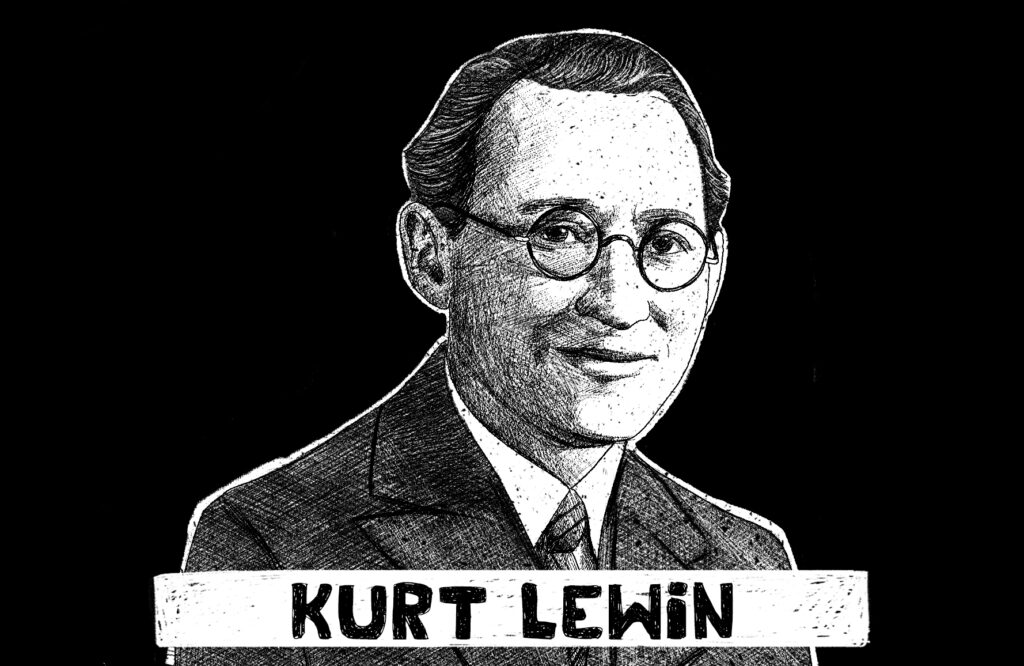According to Gordon Allport, “social psychology is the scientific attempt to understand and explain how the thought, feeling and behaviour of individuals are influenced by actual, imagined or implied presence of others”
The below write-up consists of answers to questions like “who founded social psychology?”, “when was social psychology founded?”, “which are the significant experiments of social psychology?”.
What is the History of Social Psychology?
Formation of theories of social psychology goes way back to the times of Aristotle where he believed that humans are naturally social beings which prompts them to live together.
In recent times came Hegel (1770-1831) introducing the idea of “group mind” which states that society is linked to the development of one’s mind. This proved to be an important base for the field of social psychology.
The concept of “Volkerpsychologie” was developed by Lazarus and Steinthal in 1860. It stated that personality develops through cultural influence especially the community language.
The earliest text on social psychology is McDougall’s “An Introduction to Social Psychology” published in 1908. It had chapters on sentiment, emotions, morality, etc. which were relevant at those times. McDougall believed that social behaviour was an innate quality of man and hence it was developed only through the individual.
Kurt Lewin along with his colleague, Leon Festinger created a scientific approach to the field. They focused on the dynamic interactions amongst people.
Festinger edited Research Methods in Behavioural Sciences, 1954, in which they stressed the need for laboratory experiments for testing hypotheses and social behaviour.
The various significant texts of social psychology are as follows:
- 1908- An Introduction to Social Psychology
- 1950 – Journal of Abnormal and Social Psychology
- 1963 – Journal of Personality, British Journal of Social and Clinical Psychology
- 1965 – Journal of Personality and Social Psychology, Journal of Experimental Social Psychology
- 1971 – Journal of Applied Social Psychology, European Journal of Social Psychology
- 1975 – Social Psychology Quarterly, Personality and Social Psychology Bulletin
- 1982 – Social Cognition
- 1984 – Journal of Social and Personal Relationships
Which experiments were conducted in the historical development of social psychology?
Scientists began systematic experiments of social psychology around the 1900s.
Tripplett, in 1898, investigated the changes in overall performance of cyclists and school children in the presence of others.Sheriff, in 1935, studied individual behaviour towards societal norms.
A few years later, Lewin et al conducted experimental research on leadership and group processes in 1939.
The key experiments done in social psychology are:
- Social Facilitation- Allport (1920)
- Cognitive Dissonance- Festinger (1950)
- Social Learning Theory- Bandura (1963)
- Shock Experiment- Milgram (1963)
- Social Identity Theory- Tajfel (1971)
- Standforf Prison Experiment- Haney, Banks, Zimbardo (1973)
- Attribution Theory- Weiner (1986)
Thus the historical development of social psychology occurred in the 1940s, various topics like aggression, relationships, decision making and anti-social behaviour began being studied.
Social psychologists got down to serious business post World War II. Muzafir Sherif, Solomon Asch and Stanley Milgram conducted studies on conformity, obedience and societal pressure. They attempted to study how the German dictator Adolf Hitler planted extreme obedience in his followers to the extent of instigating them to harm other humans horrendously.
The Stanford Prison Experiment conducted by Haney, Banks and Zimbardo in 1973 concluded that the students playing the role of prison guards became violent to the extent of fatality and the study had to be terminated immediately.
The 20th Century witnessed the historical development of social psychology to various extents.
Social psychologists were consulted in the 1954 Brown vs. Board of Education U.S. Supreme Court case and helped end racial discrimination in U.S. public schools. Even today social psychologists serve as witnesses in such cases, providing opinions through their research.

Who was Dr.Kurt Lewin?
Dr. Kurt Lewin, known as the father of Modern Social Psychology, was born in Prussia into a Jewish family. He completed his schooling in Berlin and studied medicine in 1909 after which he studied biology at the University of Munich. Eventually he completed his doctoral degree at University of Berlin. He served in the German army during which he was injured in combat.
In context to psychology, he started off with an interest in behaviourism but soon shifted to Gestalt psychology. His experiences in the army had a major impact on his study of group dynamics. Dr. Lewin’s theory focused on individual personalities, interpersonal conflicts and situational variables. It concluded that each one’s individual traits and their environment interact to form their behaviours.
Dr. Lewin pioneered the use of scientific methods and experimentation on social behaviour. He expanded Gestalt psychology and applied the theories on human behaviour. His systematic testing on human behaviour has guided experimental psychology, personality psychology and social psychology. He established the Research Centre for Group Dynamics at Massachusetts Institute of Technology (MIT) to provide practical applications to his theories. Dr. Lewin has published eighty articles and eight books before he passed away at the age of 56.
Read More:
Western Festivals and Their Effect On Mental Health
Unleash the Colours Of Happiness
Impact of Social Media on Relationships





